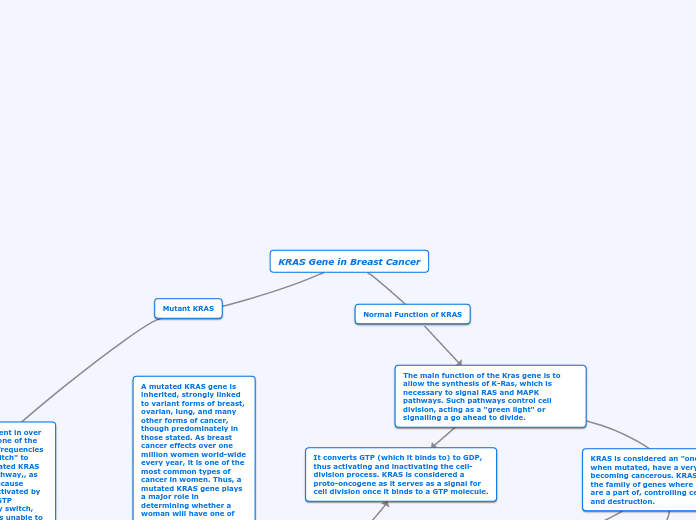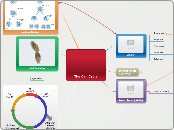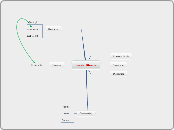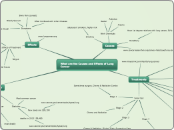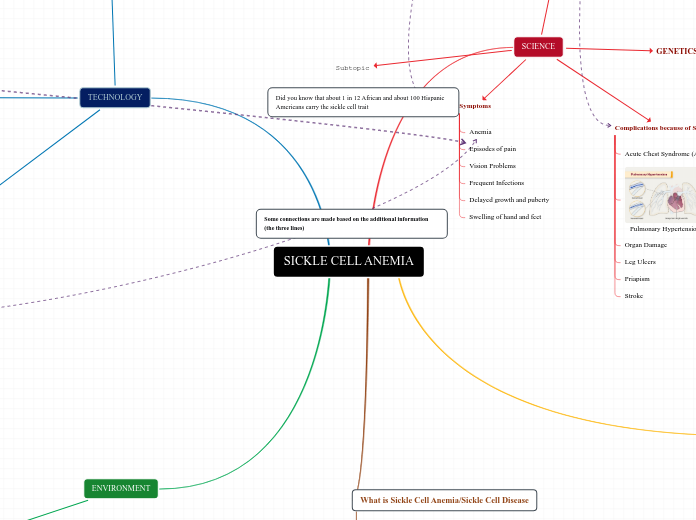What studies or therapies are being conducted for KRAS mutation prevention/treatments?
Very little success was found in a clinical trial where a MEK inhibitor (PD-0325901) along with palbociclib was used to attempt to treat breast cancer, as the MEK inhibitor is already FDA-approved for treatment. In the NCT02022982 trail, 7 out of 25 patients experienced "treatment," some symptoms going away, or received some other benefit in a 6 month span.
A current study at UCSF is open to the public, with those eligible from the ages of 12 months to 21 years of age to see if and how selumetinib sulfate works with advanced solid tumors, lymphoma, and other cancers that are associated with active MAPK pathway mutations, which are directly linked to mutant KRAS genes.
What cancers are mutated KRAS genes found?
As a mutated proto-oncogene (an oncogene) allows for continuous, ceaseless cell division. This in turn allows for the build up of cells, forming large and deadly tumors.
KRAS Gene in Breast Cancer
Mutant KRAS
The KRAS gene mutation is present in over 90% of pancreatic carcinomas, one of the highest human gene mutations frequencies to exist. Because GTP is the "switch" to such genetic pathways, the mutated KRAS gene does still turn "off" the pathway,, as most mutations do. However, because GTPase (what it binds to) is inactivated by the mutations, this means that GTP continues to bind to the pathway switch, and the Ras signalling function is unable to be turned "off," allowing the cells to divide endlessly.
Normal Function of KRAS
The main function of the Kras gene is to allow the synthesis of K-Ras, which is necessary to signal RAS and MAPK pathways. Such pathways control cell division, acting as a "green light" or signalling a go ahead to divide.
KRAS is considered an "oncogene," that when mutated, have a very high chance of becoming cancerous. KRAS is also a part of the family of genes where HRAS and NRAS are a part of, controlling cell differentiation and destruction.
Mutated KRAS genes are some of the most difficult to target, as that is why organizations such as the National Institutes of Health (NIH) have taken great strides to focus and intensify efforts of targeting the mutated proteins. It is one of the more "aggressive" mutated genes, as it is not only difficult to restrict tumor growth but will almost guarantee failure when trying to use drug therapy.
Although therapy or treatment of KRAS mutation-caused cancers is still limited, several trials and studies have been conducted on proteins that inhibit the KRAS mutant gene. The goal is to inhibit proteins such as MEK1 and MEK2 (which are major components in the MAPK pathway that KRAS governs) that are activated by mutant KRAS. Several studies have also been conducted with MEK proteins which were thought to help revert mutated KRAS genes. However, MEK inhibitors show little to no activity in clinical trials for cancers with mutant KRAS, making it seem impossible to find cures or therapies for the mutated KRAS genes and cancers.
A mutated KRAS gene is inherited, strongly linked to variant forms of breast, ovarian, lung, and many other forms of cancer, though predominately in those stated. As breast cancer effects over one million women world-wide every year, it is one of the most common types of cancer in women. Thus, a mutated KRAS gene plays a major role in determining whether a woman will have one of those cancers in her lifetime.
It converts GTP (which it binds to) to GDP, thus activating and inactivating the cell-division process. KRAS is considered a proto-oncogene as it serves as a signal for cell division once it binds to a GTP molecule.
